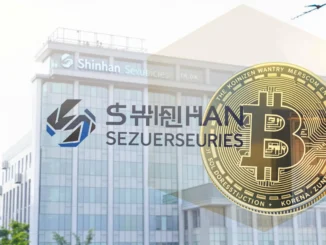
Are you following the evolving landscape of cryptocurrency regulation in South Korea? A key decision impacting how crypto exchanges operate has just been put on hold, sparking discussions across the industry.
South Korea Crypto Regulation: A Key Decision Point
The head of South Korea’s Financial Services Commission (FSC), Chairman Kim Byoung-hwan, recently decided to postpone a ruling on potentially removing the ‘one bank-one crypto exchange’ rule. This regulation requires each virtual asset service provider (VASP), like a crypto exchange, to partner with just one commercial bank to handle real-name accounts for customer deposits and withdrawals. It’s a significant part of the current crypto regulation South Korea has implemented to oversee the market.
The proposal to repeal this rule was reportedly pushed by the People Power Party, particularly ahead of the recent presidential election. Supporters of removing the rule argued it could foster more competition among exchanges by allowing them to choose from a wider pool of banking partners or potentially work with multiple banks.
However, the existing rule was put in place primarily to enhance oversight and mitigate risks, especially concerning money laundering crypto transactions. The unique partnership model allows banks to closely monitor the flow of funds for their associated exchange.
Why the Delay on the One Bank One Exchange Rule?
Chairman Kim Byoung-hwan emphasized that the current ‘one bank-one crypto exchange’ framework is a critical tool for combating money laundering risks within the crypto sector. Making changes without thorough review could potentially weaken these safeguards.
He stated that authorities need more time to carefully examine the current situation and potential impacts before making any adjustments to the rule. This suggests a cautious approach to regulatory changes that could affect market stability and integrity.
Broader Regulatory Discussions and Stablecoins
Beyond the VASP banking rule, the FSC is also looking at other areas of crypto regulation. The Bank of Korea has raised concerns about potential capital outflows linked to stablecoins.
Chairman Kim indicated that discussions on developing a specific regulatory framework for stablecoins are anticipated. This will likely be part of a broader initiative to refine crypto regulations in South Korea, expected to commence around June. Addressing stablecoin risks is becoming a global priority for regulators.
What This Means for the South Korea Crypto Market
The decision to delay the repeal of the ‘one bank-one crypto exchange’ rule means the status quo remains for now. While some VASPs might have hoped for more flexibility or potential cost reductions from increased banking competition, the focus remains on maintaining robust anti-money laundering crypto measures.
The ongoing discussions highlight South Korea’s commitment to building a comprehensive regulatory environment for virtual assets. Future developments will likely address market structure, consumer protection, and systemic risks, including those posed by stablecoins.
Summary: Uncertainty Lingers as Regulation Evolves
In summary, South Korea’s FSC Chairman has decided to delay a decision on repealing the ‘one bank-one crypto exchange’ rule. Citing concerns over money laundering risks and the need for further review, the current system remains in place. This decision comes amidst broader discussions about strengthening crypto regulation South Korea, including addressing the Bank of Korea’s concerns about stablecoins. The path forward for South Korea crypto policy involves careful consideration of both market development and risk mitigation.



